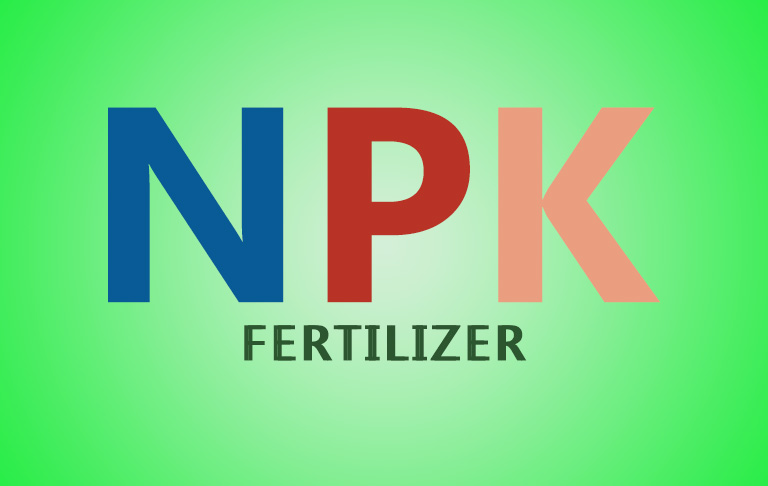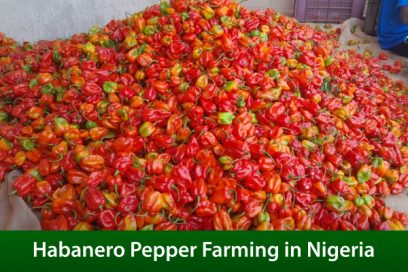- You have no items in your shopping cart
- Subtotal: ₦0
NPK Fertilizer is one of the several nutrients that are needed by plants for their development and optimum growth. Plants won’t generally grow to their full potential without these nutrients and plants will be more susceptible to disease and perform below their expected yield.
NPK simply mean Nitrogen (N), Phosphorus (P), and Potassium (K) also known as NKP fertilizer.
There are so many NPK fertilizer composition and combinations, e.g., NPK 10-10-10, NPK 20-20-20, NPK 10-8-10 and others.
People usually ask;
- NPK fertilizer, what is it, and how does it work?
- What does the NPK fertilizer ratio mean?
- When to use NPK?
- What’s NPK fertilizer benefits?
The numbers on the fertilizer represent the value these nutrients contained in a certain quantity (e.g., a tin, a bag). The figures indicate the concentration of the nutrients in the fertilizer. Take, for instance, numbers on NPK fertilizer 20-10-10 have two times more nitrogen in it than phosphorus and potassium. A 20-20-20 fertilizer has an equal concentration of NPK.
These nutrients are quickly removed in the soil as a result of continuous farming and other environmental factors. In the tropics, soils are usually lacking with these three nutrients. Action must be taken to put back nutrients into the ground to create a quality environment for the healthy growth of plants.
Let’s quickly look at the roles of these three nutrients in the life of plants
Roles of Nitrogen (N) In Plants
Nitrogen is so vital component of chlorophyll which plants use to trap sunlight for the production of sugars from water and carbon dioxide (photosynthesis). Nitrogen is the building blocks of proteins and significant component of amino acids.
Sources of Nitrogen
Nitrogen present in soil minerals is released as metal decomposes. This process is slow and contributes only slightly to nitrogen nutrition on most soils. The rates at which fertilizers are determined by the plant you want to grow, expected yield, and soil nitrogen capacity. Decisions for the application of this nutrient on either soil or crops are usually based on different geographical area and experience recommendations.
Some Organic Sources of Nitrogen
- Feather Meal
- Manure
- Blood Meal
- Compost
Some Inorganic Sources of Nitrogen
- Urea Ammonium Nitrate
- Urea
- Anhydrous Ammonia
Role of Phosphorus (P) in Plants
Phosphorus is highly needed for healthy plant growth and normal development of crops as its contributing to structural strength, seed production, promotes blooming, crop quality, and root growth. Phosphorus is vital at transforming solar energy into usable compounds.
Sources of Phosphorus
Phosphorus comes in the form of from both organic and inorganic in NPK fertilizer
Some Inorganic Sources of P in NPK
Phosphate rock is the primary source of inorganic phosphorus is. Grounded phosphate rock is usually applied to soils directly, but more effective if processed to be more readily available for plant uptake.
Familiar Organic Sources of P in NPK
- Bone Meal
- Manure
- Blood Meal
- Compost
Potassium (K)
This is also an essential nutrient for growth and development. Potassium contributes to many of the characteristics that are associated with size, shape, quality, colour, and even taste. Plants that grow in soils that potassium id limited in usually have lower yields and stunted growth
Sources of Potassium (P)
Potassium can be sourced from a wide range of sources, both organic and inorganic:
Some Inorganic Sources of K in NPK
Potash, the primary inorganic source of potassium is processed and mined all over the world into a more refined product. Potassium can also come from potassium sulfate, langbeinite, and granite dust.
Some Organic Sources of Potassium in NPK are
- Compost
- Manure
- Wood Ash
NPK Fertilizer Manufacture
N P K fertilizers (organic or inorganic fertilizer NPK ) are available in liquid, gaseous, and granular form, with granular being the most common.
While these fertilizers are composed mainly of the three primary nutrients, various other micro-nutrients can be incorporated into the blend. For instance, NPK has been gaining popularity in response to the sulfur deficient soils resulting from the Acid Rain Act.
Specialty fertilizers, or fertilizers formulated to suit the unique nutrient needs of a particular location, are also becoming more popular.
There are quite several online shops where you can buy NPK fertilizer varieties in Nigeria at your convenience and comfort in wholesale or bags. No matter your fertilizer needs, they can help.



